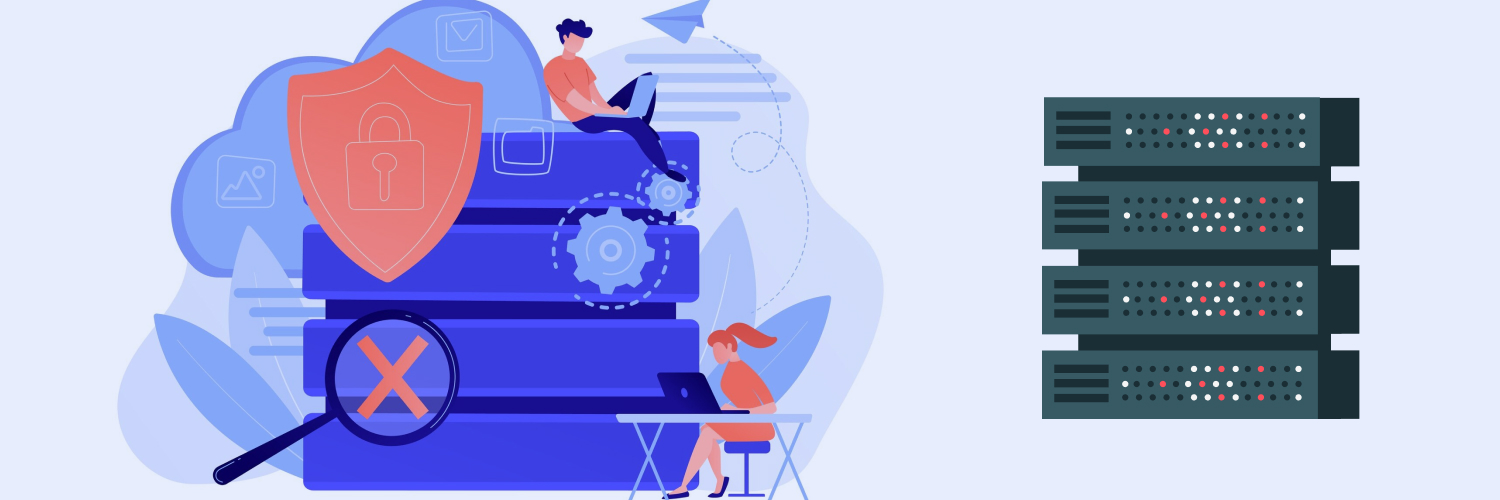Proxies vs. VPN: What’s the Difference?
When it comes to browsing the internet, I do not like to waste time. With so many streaming, eCommerce, and gaming sites out there, it can be difficult to know where to go and when. Sure, I have my favorites, but I have also spent countless hours clicking from one site to the next, only to realize that the information I want is not available in the country I live in. Not only that, but the more time I spend online, the less secure my personal data could be. Consider all of the places where you enter credit card information, your phone number, and home address. But despite restrictions on your location or potential data breaches, there is no way we can stop using the web on a daily basis. It has become such a major part of our lives, that instead of becoming frustrated by its limitations, we must fight against them and find a solution to all the problems listed above. But how do we go about making our time online more enjoyable? If you have done any research on the subject, you might have come across a few different solutions. Proxies and VPNs.
In this blog, I will define what each of these tools is, what they do, and clearly settle the debate of what is better: VPN or proxy. By exploring a proxy vs. VPN, you will soon have enough knowledge to set up the right tool for all your web browsing needs.
Table of Contents
What Is a VPN and Proxy?

Before we can properly answer the questions of which is better proxy or VPN, we must first define each term individually.
First up, proxies. Every single device that you own, from your computer to your smartphone, comes with a unique IP address. This address is an identifying number for your device. It allows websites to see who is coming in and out of their site, making it easier for them to track web traffic and calculate hits. While beneficial for website owners, this IP can be incredibly limiting to the owner of the device. This is because that address limits the sites you are able to visit and the content you are able to see. That is where a proxy comes in handy. A proxy is a new way to enter the internet. This tool shields your original IP address, making it appear as though you are located in the same place as the proxy server, all while keeping your identity more secure than ever before. Proxies allow you to browse the web anonymously and unblock content that would otherwise be restricted because of your physical location.
With a clearer understanding of proxies, the next tool to define is a VPN. VPN stands for virtual private network, unlike a proxy, a VPN creates a secure tunnel between your device and the internet. Rather than acting as a bridge, the VPN connects directly to the website’s server. In addition, VPNs encrypt all internet traffic, meaning data is scrambled when it is sent over a WiFi network. This makes that data nearly untraceable. VPNs also keep your search history hidden from any prying eyes that are hoping to see your online activity.
Now that we have established proxies vs. VPN, I want to talk a little bit more about how to connect your device to the internet using a VPN or proxy service and talk about the differences between a VPN and proxy. After all, you want to be sure that you are buying the right tool for all your online browsing needs.
Proxy vs. VPN

Now that we have our definitions fully in place. I want to talk more in-depth about a proxy vs. VPN. And since I am sure you are wondering, which is faster proxy or VPN and overall, which is better VPN or proxy? Let’s weigh the differences and discuss some of the most important aspects of using one of these tools in the first place. By doing so, we will surely find the best tool for you and your device.
Speed
When it comes to surfing the web, fast speeds are crucial, especially if you use your computer for work. In the case of a proxy vs. VPN, proxies are the faster choice. As I mentioned above, a VPN encrypts all of your data, while this sounds incredibly secure and useful, it can actually be a great hindrance. When your server is met with a lot of encrypted data, it begins to slow and has to work harder in order to get you where you want to go. Lag is increased, therefore making it more difficult to get from one web page to the next. On the flip side, proxies have dedicated network lines, making the connection between your device and the internet a strong one. Plus, when you buy private proxies you will no longer be sharing bandwidth with other web users, further helping with connection speeds.
Privacy
Since privacy is one of the main reason’s web users install a proxy or VPN in the first place, we want to be sure that the tool we select is actually helping increase privacy and helping to stop any nefarious activity from encroaching upon your device. While both proxies and VPNs work toward this common goal, proxies are a better choice when it comes to keeping your personal data safe. This is because many VPN providers keep logs of web activity, tracking where you go and the sites that you are visiting. The government even has the right to subpoena these logs, taking away your privacy even more. However, trusted proxy providers do not keep logs and understand that your privacy is massively important to you. So, the question of proxy vs VPN which is more secure? The answer is proxy.
Bandwidth
When you invest in a quality proxy or VPN, you want to have full access to the tool while you are paying for it. Unfortunately, some VPN companies put bandwidth limits on their customers. Once you reach the bandwidth limit, you will no longer be able to access the server anymore. While not all VPN companies do this, you still need to be careful of the ones that do and make sure you are not putting more limitations on your device. However, you could make it much easier on yourself by choosing a proxy instead. Then, you will not have to worry about reaching your limit and getting kicked off your favorite online sites. You can keep on browsing the internet, no matter how much bandwidth you use. This option is much simpler than keeping track of every bit of bandwidth you utilize throughout the month.
What to Keep in Mind When Choosing an HTTP Proxy vs. VPN

With a better understanding of a proxy vs. VPN, I think it is fair to say that a proxy checks all of the right boxes and makes it easier to browse the web without limitations and complications. And because we have a clear winner in the HTTP proxy vs. VPN debate, I want to spend some time discussing the different kinds of proxies you might run into and talk about how easy it is to set up your proxy.
The first tip, you will want to make sure to buy your proxy. While free proxies do exist, they are often unreliable and open your device up to hackers and other potential issues. Find a reliable proxy provider and invest in a high-quality proxy that you can trust.
Two of the most popular kinds of proxies are semi-dedicated and dedicated. Semi-dedicated proxies are shared with a small number of people. While they are incredibly cost-effective, they do not offer as much security as other proxies. If you split the cost of the proxy with roommates or family, then you will not have to worry as much. However, if you share the proxy with strangers, then you might be competing with them over bandwidth and overall proxy usage. On the flip side, dedicated proxies are for you and you alone. They keep you protected and stop you from having to share bandwidth with others. I recommend private proxies for all of your proxy needs.
After you find the right proxy for your needs, all you have to do is follow the instructions given by your provider in order to set one up on your device. Thankfully, set up is usually as simple as opening up your preferred browser, navigating to the settings, and entering the proxy information provided to you. Once that is done, you will be free to use your proxy at your leisure. You can even check that you have installed your proxy correctly by looking up the IP address on https://whatismyipaddress.com.
Since We’ve Established Which Is Better VPN or Proxy…

With the definition of what is a proxy or VPN established and the debate over what is better for streaming VPN or proxy firmly in place, it is time to introduce you to the very best proxy provider on the market today. Enter Rayobyte. Here at Rayobyte, we pride ourselves on offering high-quality proxies at reasonable prices. Not only do we offer both semi-dedicated and dedicated proxies, but we also have proxy servers in nine different countries across the globe. This means that if you live in Japan but need a proxy that is located in the United States, we have you covered. Plus, when you choose a company like us, your options for software usage are vast. With Rayobyte, you can use SEnuke, Xrumer, and other software with your proxy. Even if you do not plan to use the software right away, giving yourself the option to use it down the road is incredibly beneficial.
Best of all, we have a customer service team that is ready and available 24/7, happy to answer any and all of your pressing proxy related questions. We are passionate about proxies and are thrilled to help you enter the internet in a whole new way. Choose us for all your proxy needs and you will be able to buy your proxies in bulk, have flexibility in terms of length of use, and switch out your proxy at your convenience.
Final Thoughts on Proxies vs VPN

Going from one tab to another, opening up multiple websites at once, and using software on your device, are just a few of the ways we use the internet on a daily basis. Given how important speed and bandwidth are these days, there is no way to get everything you need to get done when you have a slow server with a poor connection. In the case of using a proxy vs. VPN, proxies have major advantages. With the help of proxy providers like Rayobyte, you can now shield your IP address, browse anonymously, and unblock content from locations around the world. When it comes to using the web, there should be no limitations or safety concerns. Use a high-quality proxy and you will see your device in a whole new light.
The information contained within this article, including information posted by official staff, guest-submitted material, message board postings, or other third-party material is presented solely for the purposes of education and furtherance of the knowledge of the reader.
All trademarks used in this publication are hereby acknowledged as the property of their respective owners.



